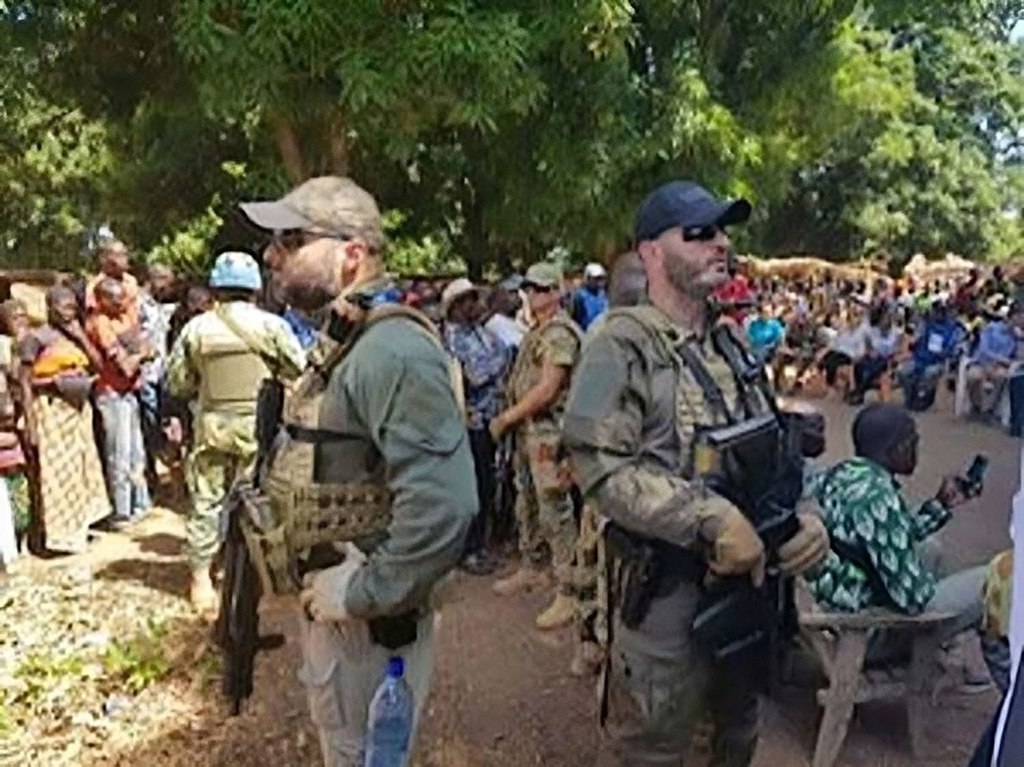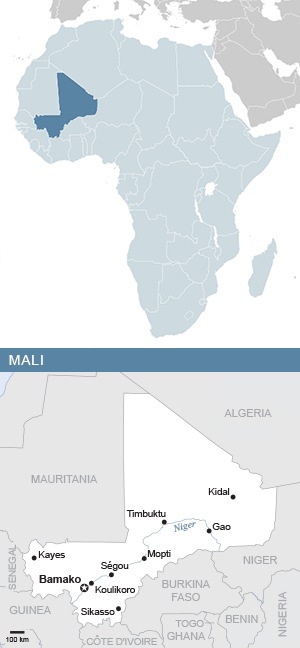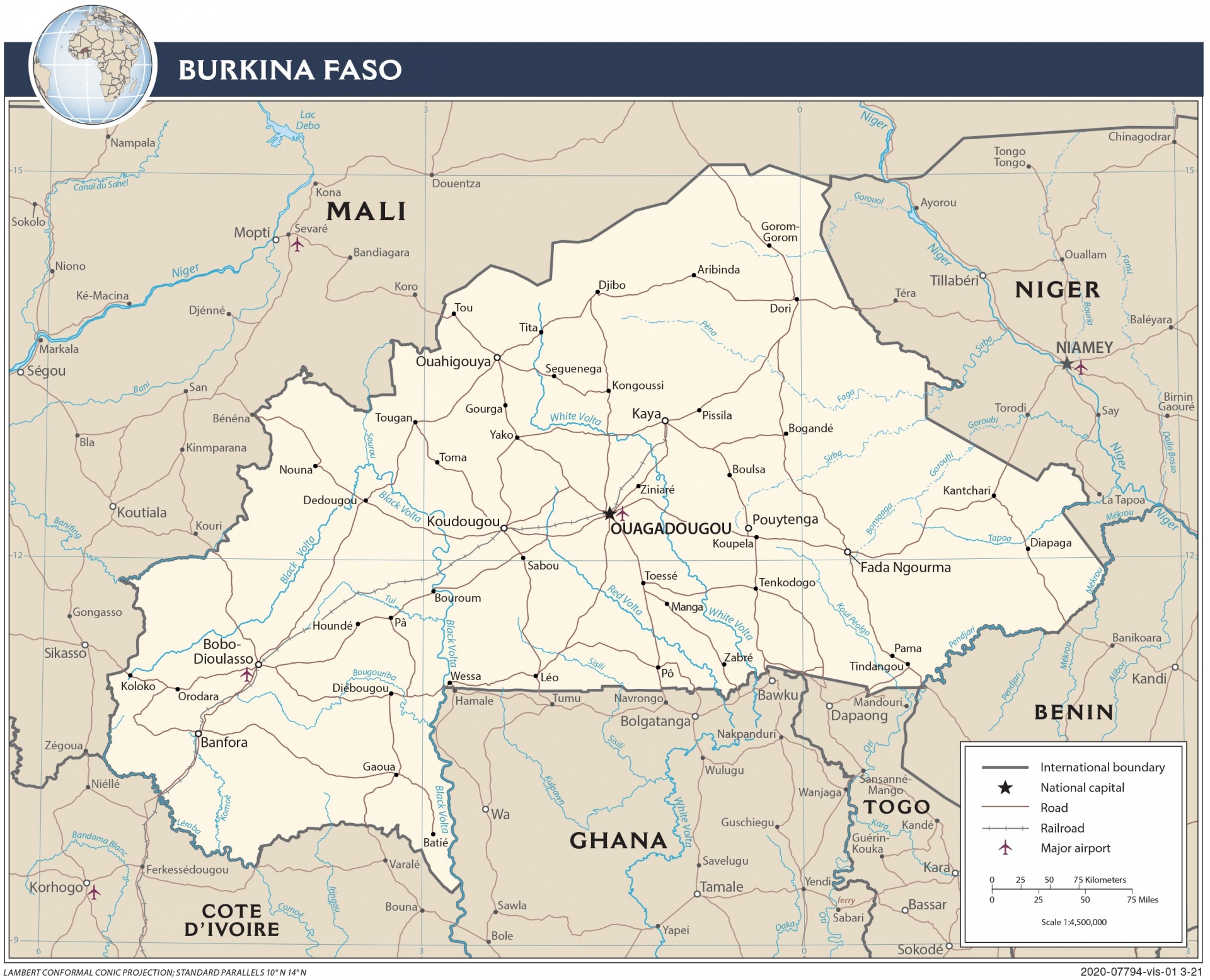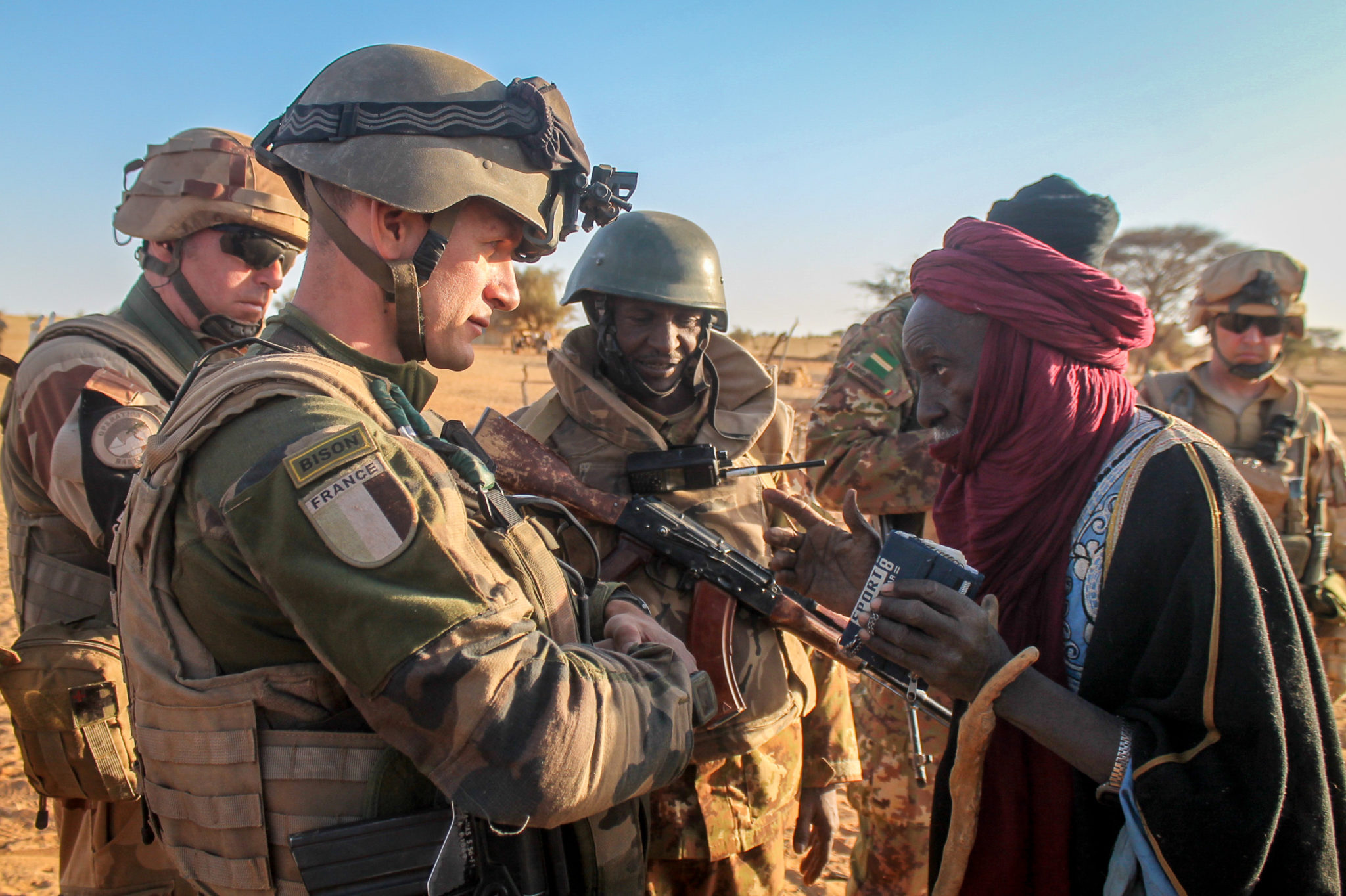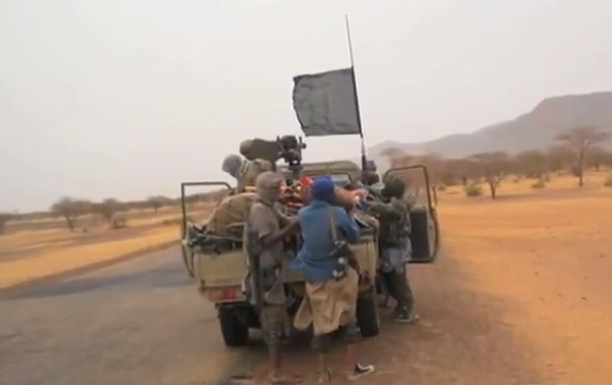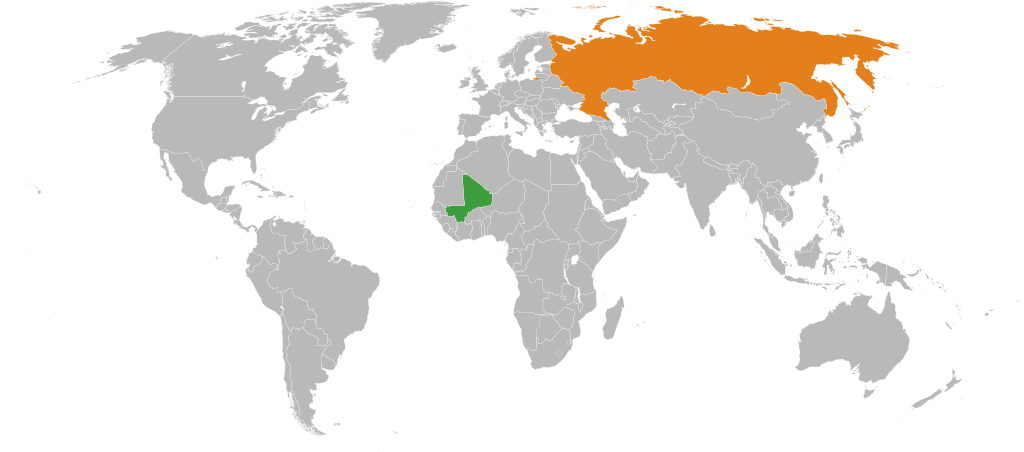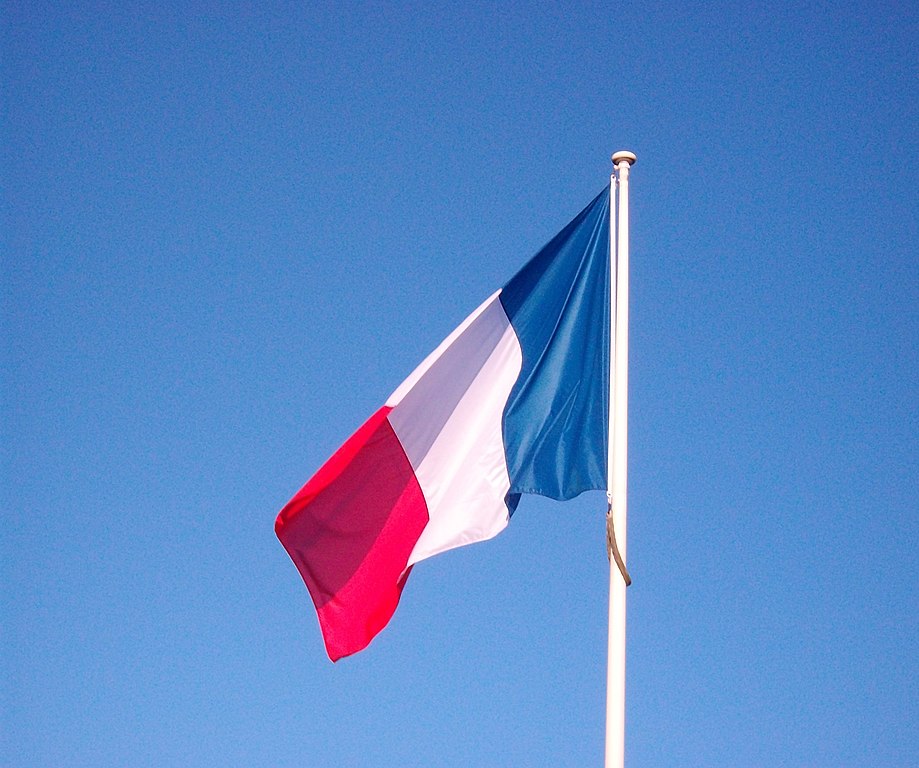
Anti-French sentiment has been spreading in francophone Africa and was a prominent discourse in the recent Nigerian military takeover.
“Events of an extreme gravity are unfolding in Niger as a result of the behavior of the French forces and their accomplices.”
France, and the West more generally, appear to have lost one of their last, and most consistent, West African counterterrorism allies with the ouster of Nigerien President Mohammad Bazoum on 26 July by Abdourahamane Tiani, the former leader of Niger’s presidential guard. Like Mali, Burkina Faso, and Guinea, all of which have been taken over by military juntas over the past several years,[i] Niger’s new military government has thus far painted France, and its lackluster counterterrorism and development efforts, as to blame for Niger’s woes.
As per the accompanying article from the pan-African news aggregator Africanews.fr, the military junta spokesman, COL Amadou Abdramane, has claimed France was orchestrating a concerted effort to undermine the new leadership by releasing 16 terrorists and violating Nigerien airspace. According to junta statements, “Events of an extreme gravity are unfolding in Niger as a result of the behavior of the French forces and their accomplices,” and “we are witnessing a real plan of destabilization of our country, orchestrated by French forces.” France has denied the claims. These sentiments echo previous assertions by senior officials in Mali, Burkina Faso, and Chad, all claiming that France was funding or supporting terrorists.[ii] [iii]
These more specific claims are in line with a broader ethos of anti-French sentiment that marked the overthrow in Niger. In the immediate aftermath of the takeover, thousands of protestors attacked the French Embassy in Niamey. As in Mali and Burkina Faso, protestors displayed signs depicting anti-French (“France kills in Niger”) and pro-Russian (“Down with France, vive Russia!”) sentiments. Translating this French antipathy into policy, on 4 August, the junta declared that it had formally annulled its security cooperation activities with France that were foundational to fighting Islamist insurgencies tied to al-Qaeda and the Islamic State. Simultaneously, it ceased the dissemination of French-funded broadcasters France 24 and RFI, following similar moves by Burkina Faso and Mali. Unless former president Bazoum is reinstalled, the takeover in Niger portends a loss of not only French but U.S. influence, especially in the counterterrorism space. If Mali and Burkina Faso provide any guide, it is reasonable to expect Niger’s new government to pursue a similarly populist, anti-French, pro-Russian—and likely pro-Wagner[iv]—path in coordination with other African military regimes.
Source:
“Niger: la junte accuse la France d’avoir “libéré des terroristes (Niger: junta accuses France of having liberated terrorists),” Africanews.fr (pan-African news aggregator), 8 August 2023. https://fr.africanews.com/2023/08/09/niger-la-junte-accuse-la-france-davoir-libere-des-terroristes/
Niger’s new military rulers on Wednesday accused France, the country’s traditional ally, of having “unilaterally freed captured terrorists,” a term used for jihadists, and of breaching a ban on the country’s air space.
They claimed that France released a number of jihadists, who then gathered to plan an attack on “military positions in the tri-border area,” a hotspot region where the frontiers of Niger, Burkina Faso and Mali converge.
“Events of an extreme gravity are unfolding in Niger as a result of the behaviour of the French forces and their accomplices,” according to the statement issued by the new regime, called the National Council for the Safeguard of the Homeland (CNSP).
The statement reported that a unit of the armed forces had come under attack on Wednesday, although it did not directly link this with France’s alleged release of the jihadists.
A position held by the National Guard in a locality called Bourkou Bourkou, 30 kilometres (18 miles) from a gold mine at Samira in western Niger, came under attack at 6:30 am (0530 GMT), it said.
“At present, the toll is not yet known.”
The statement called on the security forces to “raise their alert level across the country” and on the public “to remain mobilised and vigilant.”
The regime also accused France of having allowed a “military plane” to take off Wednesday from neighbouring Chad, which then crossed into Niger, defying a ban imposed on Sunday.
The aircraft “deliberately cut off all contact with air traffic control on entering our air space,” from 6:39-11:15 am (0539-1015 GMT), it said in a statement read on national TV.
France has around 1,500 troops in Niger, supporting the country in its fight against jihadists who swept in from Mali in 2015.
But relations broke down after French ally President Mohamed Bazoum was toppled by members of his guard on July 26.
The regime’s accusations come on the eve of a summit by the West African regional bloc ECOWAS on how to tackle the Niger crisis.ECOWAS — the Economic Community of West African States — had given the coup leaders until Sunday to reinstate Bazoum or face the risk of military intervention.
Notes:
[i] For more on the relationship between Mali, Burkina Faso, and Guinea, see: Jason Warner, “Russia-Supported Military Rulers in Mali, Burkina Faso, and Guinea Continue To Deepen Ties,” OE Watch, 04-2023. https://fmso.tradoc.army.mil/2023/russia-supported-military-rulers-in-mali-burkina-faso-and-guinea-continue-to-deepen-ties/; Jason Warner, “West African States Ruled By Military Leaders Seek To Circumvent Future Sanctions” OE Watch, 03-2023. https://fmso.tradoc.army.mil/2023/west-african-states-ruled-by-military-leaders-seek-to-circumvent-future-sanctions/
[ii] For more information on claims that France is funding African terrorists, see: Jason Warner, “Mali Claims France Funded Terrorists; France Denies,” OE Watch, 10-2022. https://community.apan.org/wg/tradoc-g2/fmso/m/oe-watch-articles-2-singular-format/428171; Jason Warner, “CAR Joins Mali in Accusing France of Funding Terrorists,” OE Watch, 04-2023. https://fmso.tradoc.army.mil/2023/car-joins-mali-in-accusing-france-of-funding-terrorists/
[iii] For more information on the anti-French sentiments in the security sphere in Africa, see: Jason Warner, “French Researchers Respond to Wave of Anti-French Sentiment in Africa,” OE Watch,07-2023. https://fmso.tradoc.army.mil/2023/french-researchers-respond-to-wave-of-anti-french-sentiment-in-africa/; Jason Warner, Lassane Ouedraogo, and Matthew Kirwin, “The Fake News Phenomenon in the Sahel: ‘Afrancaux News’ and the Postcolonial Logics of Polemical Information,” African Studies Review, 65 (4): December 2022, 911 – 938.
[iv] For more on how post-coup African states have begun to cooperate with the Wagner Group, see: Jason Warner, “Vast Majority of Malians Express Confidence in Russian Ability To Address Jihadist Violence,” OE Watch,06-2023. https://fmso.tradoc.army.mil/2023/vast-majority-of-malians-express-confidence-in-russias-ability-to-address-jihadist-violence/; Jason Warner, “Mali Defends Reliance on Russian Counterterrorism Assistance,” OE Watch, 03-2023. https://community.apan.org/wg/tradoc-g2/fmso/m/oe-watch-articles-2-singular-format/437332; Jason Warner, “Burkina Faso Fights Terrorism With Recruits and Russia,” OE Watch, 02-2023. https://community.apan.org/wg/tradoc-g2/fmso/m/oe-watch-articles-2-singular-format/436264
Image Information:
Image: Anti-French sentiment has been spreading in francophone Africa and was a prominent discourse in the recent Nigerian military takeover.
Source: https://commons.wikimedia.org/wiki/File:French_Flag_(5089610330).jpg
Attribution: CC By 2.0

